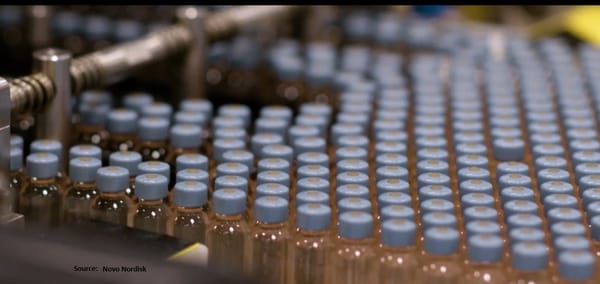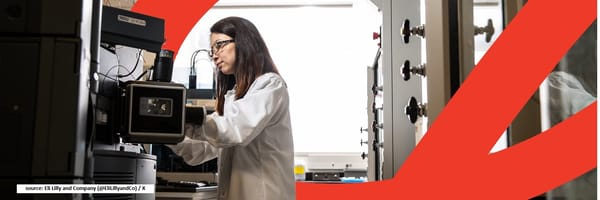Pfizer's Gene Therapy for Adults with Hemophilia B Receives FDA Approval

Beqvez (fidanacogene elaparvovec-dzkt) is a gene therapy that offers a one-time solution for adults with hemophilia B. It enables them to produce factor IX on their own, eliminating the need for regular intravenous infusions.
Pfizer's latest breakthrough in gene therapy, Beqvez (fidanacogene elaparvovec-dzkt), has received FDA approval for the treatment of moderate to severe hemophilia B in adults. This therapy is designed for individuals who require factor IX (FIX) prophylaxis treatment, suffer from life-threatening hemorrhages, or frequently experience serious spontaneous bleeding without developing neutralizing antibodies to adeno-associated virus serotype Rh74var (AAVRh74var) capsid. Beqvez (fidanacogene elaparvovec-dzkt) empowers patients to produce FIX independently, eliminating the necessity for regular intravenous FIX infusions.
Beqvez employs a gene therapy method using an adeno-associated virus to introduce a functional version of the FIX gene into the targeted cells. This gene encodes a particularly effective form of FIX. Pfizer announced that Beqvez demonstrated a significant reduction in the occurrence of bleeds over a three-year period, with a median of zero bleeds.
The approval was given after assessing the results from the Phase 3 open-label, single-arm study, BENEGENE-2 (NCT03861273). The study evaluated the efficacy and safety of Beqvez in a group of 45 adult males, ranging in age from 18 to 65, who had FIX circulating activity of 2% or less. The goal was to compare the annualized bleeding rate (ABR) for participants in the study with the standard care usually given. Pfizer has announced that BENEGENE-2 has successfully met its primary goal of showing that the occurrence of total bleeds after Beqvez infusion is not worse than the prophylaxis regimen with FIX, which is usually given as part of routine care. During the efficacy evaluation period, which lasted from week 12 to data cutoff (with a median follow-up of 1.8 years), patients who took Beqvez had an average ABR of 2.5. During the lead-in pre-treatment period, which lasted at least six months (with a median follow-up of 1.2 years), the average ABR was 4.5. This is in comparison to the current situation. In a majority of patients, bleeds were effectively eliminated, surpassing the percentage observed in the prophylaxis arm. Throughout the efficacy evaluation period, there was no bleeding observed, with a range of 0 to 19, in contrast to the prophylaxis arm where a median bleeding rate of 1.3 (ranging from 0 to 53.9) was recorded. In addition, patients were closely observed for a period of six years in a Phase 1/2a study and a Phase 2a long-term follow up study.
People with hemophilia B have a deficiency of FIX, which affects blood clotting and causes longer and more frequent bleeding episodes compared to individuals without the condition. Approximately 38,000 people worldwide are impacted by this condition. People with hemophilia B often experience unexpected bleeding episodes, even when they follow their treatment plan and receive regular infusions.
This milestone showcases Pfizer's continued dedication to enhancing the quality of care for individuals with hemophilia. The medicine being delivered has the potential to offer long-term protection against bleeding and provide value to the healthcare system through its one-time administration. Aamir Malik, Pfizer's chief US commercial officer and executive vice president, conveyed this message in a press release. Utilizing their extensive knowledge gained from 40 years of experience in the hemophilia field, they actively engage in partnerships with treatment centers, payers, and the hemophilia community. Their objective is to ensure that the healthcare system is adequately equipped to offer Beqvez to patients who can derive benefits from it.
Living with hemophilia can have a significant impact on different areas of one's life, making the management of the disease quite challenging. Kim Phelan, the chief operating officer of The Coalition for Hemophilia B, highlights the potential benefits of a single dose of Beqvez for eligible patients. This treatment may offer patients more time to pursue their passions.
Pfizer's Beqvez, the first FDA-approved gene therapy, has recently entered the market following the approval of its competitor Hemgenix (etranacogene dezaparvovec-drlb; uniQure/ CSL) in November 2022. Both hemophilia B gene therapies are priced at $3.5 million per dose. Pfizer has recently shared that their drug will be made available to patients in the coming quarter. Pfizer is offering a warranty program that ensures the durability of patient response, which is quite unique. The company expressed its goal of boosting payer confidence and enhancing eligible patients' drug access through this initiative.
Beqvez is currently being evaluated by the European Medicines Agency for potential approval in Europe. Regulatory approval was granted by Health Canada in January 2024. Wendy Quinn, president of the Canadian Hemophilia Society (CHS), shared her excitement in a press release about the recent approval of Beqvez, the second gene therapy for hemophilia B to receive its Notice of Compliance from Health Canada.
Source: Pfizer, uniQure, Pfizer Canada





